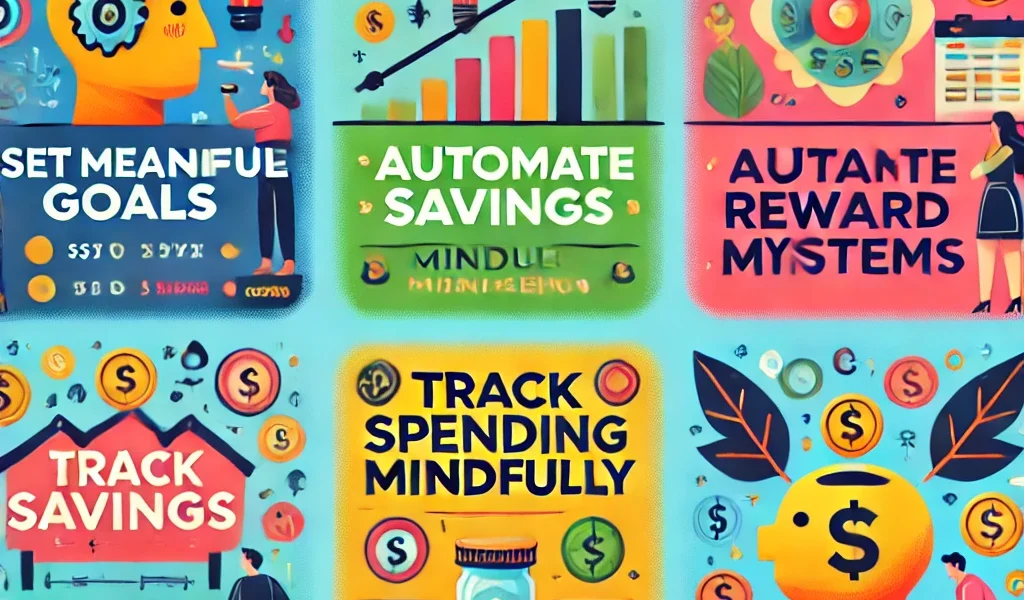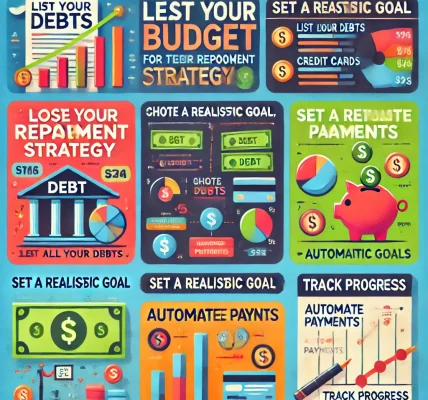📚 Introduction:
Budgeting is not just about numbers—it’s about mindset and discipline. While creating a budget might seem easy, sticking to it consistently requires motivation, emotional control, and an understanding of your financial behaviors.
Many people set a budget with the best intentions but often struggle to maintain it over time. This happens because they overlook the psychological aspects of budgeting, which play a critical role in influencing spending habits, financial decisions, and goal achievement.
In this blog, we’ll explore the psychology behind budgeting and share proven strategies to stay motivated and stick to your financial plan.
🎯 Why Understanding the Psychology of Budgeting is Important
A successful budget is not just a document—it’s a reflection of your values, goals, and habits. Understanding the psychological triggers that affect spending and saving can help you:
✅ Develop Better Spending Habits: Recognize impulsive spending patterns and make intentional decisions.
✅ Stay Consistent and Disciplined: Build the emotional resilience needed to stick to your budget.
✅ Align Your Budget with Your Values: Ensure that your budget supports your long-term financial goals.
✅ Overcome Setbacks and Stay Focused: Use psychological techniques to bounce back after budget slip-ups.
🚨 Pro Tip:
When your budget reflects your true priorities and emotions, it becomes easier to stick to it long-term.
💡 Common Psychological Barriers That Prevent Budget Success
Many people face psychological hurdles when trying to follow a budget. Recognizing these barriers can help you develop strategies to overcome them and stay on track.
❗️ 1. Instant Gratification and Impulse Spending
The desire for immediate rewards often leads people to overspend, deviating from their budgets. This happens because the brain’s dopamine system rewards short-term pleasure, making it difficult to prioritize long-term financial goals.
❗️ 2. Fear of Missing Out (FOMO)
Social media and societal pressures can create a fear of missing out on experiences, encouraging people to spend beyond their means.
❗️ 3. Budget Fatigue and Lack of Motivation
Over time, sticking to a strict budget can feel restrictive, leading to budget fatigue and reduced motivation.
❗️ 4. Emotional Spending
Emotions such as stress, sadness, or boredom often trigger impulsive spending as a coping mechanism.
❗️ 5. Unrealistic Budgeting Goals
Setting overly ambitious or rigid financial goals can lead to frustration and abandonment of the budget.
🧠 The Psychology of Successful Budgeting: Proven Strategies to Stay Motivated
To overcome these psychological challenges, implement these actionable strategies to strengthen your budgeting discipline.
📝 1. Set Emotionally Engaging Financial Goals
Connect your financial goals to meaningful and emotional outcomes that inspire you. When your goals resonate emotionally, you’re more likely to stay committed.
✅ Example:
Instead of just saying “save $10,000,” reframe it as “save $10,000 for my dream vacation” or “build an emergency fund to protect my family.”
🚨 Pro Tip:
Use visual reminders such as vision boards or goal trackers to keep your goals in sight.
📝 2. Break Big Goals into Smaller Milestones
Large financial goals can feel overwhelming and demotivating. Break them down into smaller, achievable milestones to stay encouraged.
✅ Example:
If your goal is to save $5,000 in 12 months, break it down into $417 per month or $96 per week.
🚨 Pro Tip:
Celebrate each small milestone to maintain motivation.
📝 3. Use Behavioral Triggers to Automate Savings
Take advantage of automatic savings transfers to eliminate the temptation to spend money impulsively. Behavioral triggers, such as setting a recurring transfer to a savings account, can strengthen discipline without conscious effort.
✅ Example:
Set up automatic transfers to move a fixed percentage of your income into savings immediately after payday.
🚨 Pro Tip:
Label your savings accounts with goal names (e.g., “Vacation Fund” or “Emergency Cushion”) to reinforce your commitment.
📝 4. Apply the 48-Hour Rule to Avoid Impulse Purchases
To reduce impulse spending, apply the 48-hour rule before making non-essential purchases.
✅ How It Works:
When you feel the urge to buy something impulsively, wait for 48 hours. If you still want it after that period, it may be a thoughtful purchase.
🚨 Pro Tip:
Add the item to a “wishlist” and revisit it later to see if it still aligns with your goals.
📝 5. Create a Reward System for Budget Success
Positive reinforcement helps sustain long-term motivation. Establish a reward system where you treat yourself after achieving financial milestones.
✅ Example:
If you stick to your budget for 3 consecutive months, reward yourself with a small indulgence or an activity you enjoy.
🚨 Pro Tip:
Choose non-financial rewards to avoid undermining your savings goals.
📝 6. Practice Mindful Spending and Identify Emotional Triggers
Become more aware of your emotional spending patterns and identify triggers that lead to impulsive purchases.
✅ How to Practice Mindful Spending:
- Pause before making any purchase.
- Ask yourself whether the item aligns with your goals.
- Reflect on whether the purchase fulfills a real need or an emotional impulse.
🚨 Pro Tip:
Track emotional spending patterns in a journal to identify recurring triggers.
📝 7. Visualize the Long-Term Benefits of Staying on Track
Visualization is a powerful psychological technique that enhances motivation. Imagine the positive outcomes of sticking to your budget and how it will improve your life.
✅ Example:
Visualize a debt-free future, a fully funded emergency fund, or a dream vacation.
🚨 Pro Tip:
Use visualization techniques during moments of temptation to reinforce discipline.
📊 How to Stay Motivated Even When Budgeting Feels Difficult
It’s normal to feel demotivated at times, but there are practical ways to reignite your commitment to budgeting.
❤️ 1. Reflect on Your ‘Why’ Regularly
Revisit the emotional reasons behind your budgeting goals. Reflecting on your ‘why’ keeps your motivation high.
❤️ 2. Involve Your Family or Partner in Budgeting
When you involve others in your financial journey, you create accountability and shared responsibility.
❤️ 3. Make Budgeting Fun and Engaging
Gamify the budgeting process by setting challenges, creating visual goal trackers, or participating in budgeting challenges.
❤️ 4. Accept Setbacks and Learn from Them
No one sticks to a budget perfectly all the time. If you slip up, analyze what went wrong, learn from it, and move forward.
❤️ 5. Review Your Progress Monthly
Regularly review your budget and adjust it as needed to stay aligned with your financial goals.
💸 Common Mistakes to Avoid When Trying to Stick to a Budget
❌ 1. Setting Unrealistic Expectations: Don’t aim for perfection—set achievable goals.
❌ 2. Neglecting Emergency Expenses: Always account for unexpected costs.
❌ 3. Not Tracking Small Expenses: Small daily expenses can derail your budget.
❌ 4. Relying Solely on Willpower: Automation reduces reliance on willpower.
🎉 Conclusion: Strengthen Your Financial Discipline with a Positive Mindset
Staying motivated to follow a budget is easier when you understand the psychological factors that drive financial behavior. By using these strategies, you can align your budget with your goals, overcome obstacles, and build a strong financial foundation.
Remember, budgeting success is not about perfection—it’s about consistency and growth. With the right mindset, tools, and discipline, you can stick to your plan and achieve lasting financial success.




